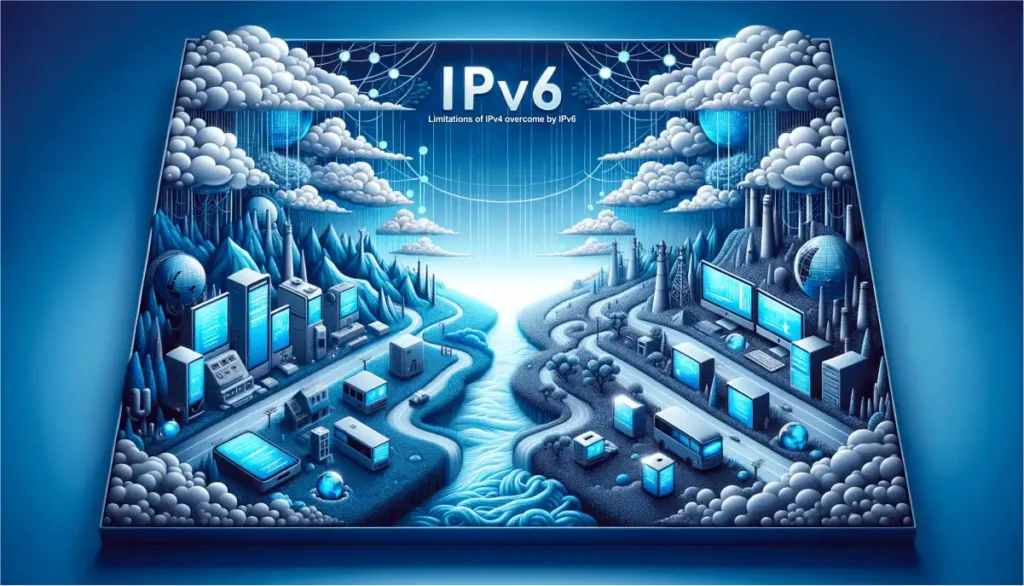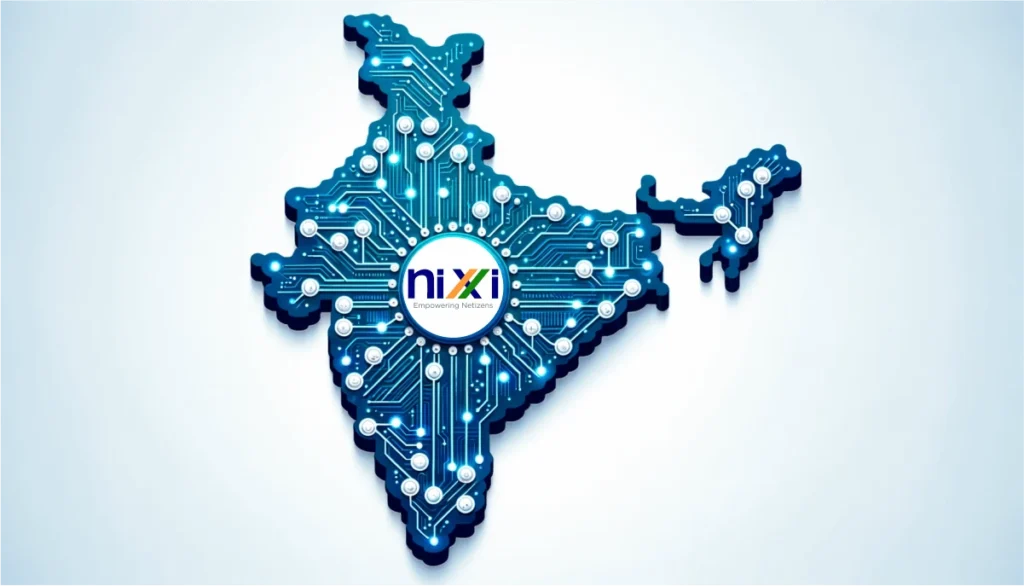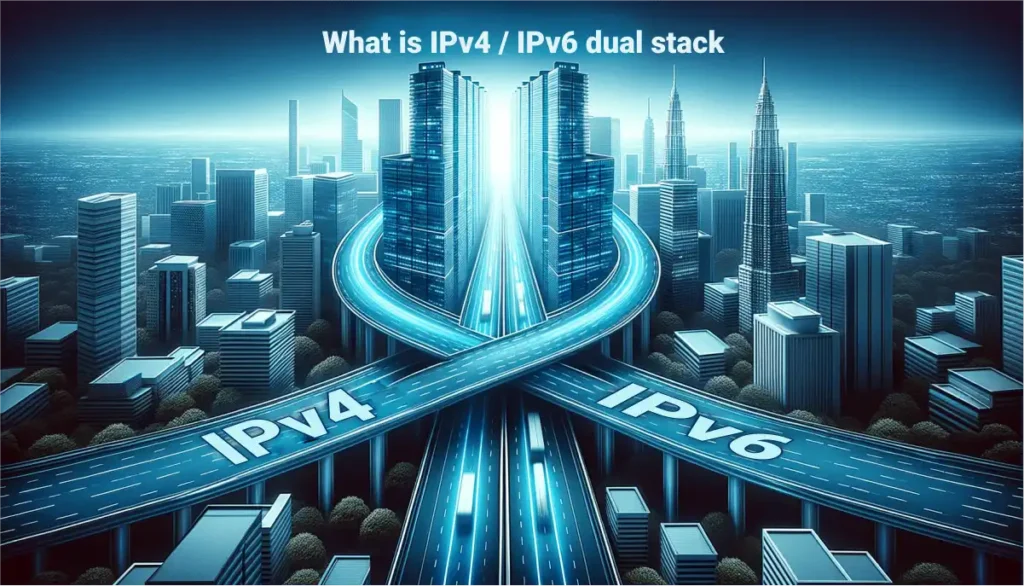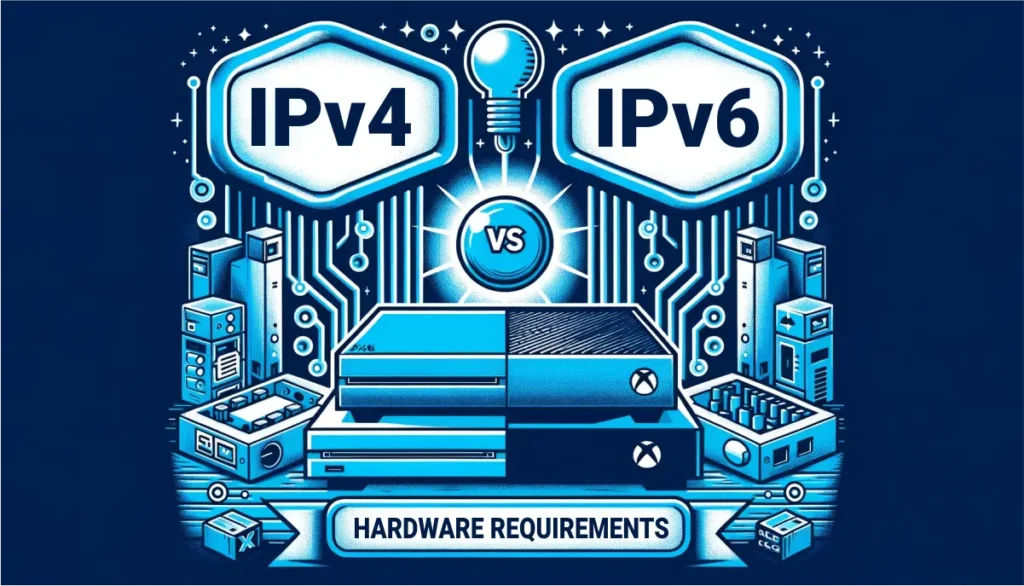Table of Contents
The internet has become an indispensable part of our daily lives. To ensure its continued growth and evolution, the adoption of new IP address systems is essential. IPv6, the sixth version of the Internet Protocol, is poised to play a pivotal role in this evolution, offering businesses a competitive edge by allowing them to connect seamlessly with customers on IPv6 networks.
Understanding IPv6
IPv6 is the successor to IPv4 and is set to become the standard Internet Protocol. Unlike the 32-bit address space of IPv4, IPv6 uses a 128-bit address system, offering an almost infinite number of IP address possibilities. This vast address space is one of the many reasons businesses and nations are encouraged to transition from IPv4 to IPv6.
Where is IPv6 Implemented?
5G Networks
5G, the fifth generation of mobile communication, is designed to be non-compatible with its predecessors. For 5G to function optimally, IPv6 is the preferred protocol, offering enhanced security and network capabilities. The integration of IPv6 with 5G is particularly crucial for emerging technologies such as mobile Internet of Things (IoT), mobile Cloud Computing, and Fringe Internet.
IoT Devices
The Internet of Things (IoT) benefits significantly from IPv6’s simplicity, especially when compared to the complexity of IPv4’s NAT (Network Area Translation). IPv6’s Neighbour Discovery Protocol (NDP) facilitates easy device connections over local networks. Furthermore, IPv6’s efficient multicast communication enhances the battery life of IoT devices by sending messages to specific devices instead of broad network-wide broadcasts.
Software Applications
Many modern software applications, including Windows, Linux, macOS, and Solaris, support IPv6.
Artificial Intelligence (AI)
The combination of IPv6 and AI promises operational efficiency and cost reductions, especially in sectors like manufacturing. This synergy ensures energy efficiency and minimizes waste.
Cloud Computing
Cloud services, such as AWS (Amazon Web Services), Google Cloud, and Windows Azure, rely on IPv6 for optimal performance. These services often provide Infrastructure as a Service (IaaS), Software as a Service (SaaS), and Platform as a Service (PaaS) to businesses.
Augmented Reality/Virtual Reality (AR/VR)
High-speed internet and enhanced security are vital for AR/VR platforms, making IPv6 the preferred network protocol. The rise in popularity of AR/VR applications in various sectors underscores the importance of a robust network protocol like IPv6.
Autonomous Vehicles
The future of the automobile industry is leaning toward self-driving or assisted driving vehicles. Vehicle-to-vehicle communication is an emerging concept where IPv6 could play a significant role, facilitating smoother traffic flow and reducing accidents.
The Importance of IPv6 Adoption
IPv6’s built-in IPSec provides a level of security that was absent in IPv4. This feature ensures a robust network, bolstered by authentication headers and encryption through the Encapsulating Security Payload (ESP). With the widespread adoption of IPv6, cyber threats like Man-in-the-Middle (MITM) attacks or Address Resolution Protocol (ARP) poisoning will become obsolete.
Global IPv6 Adoption Rates
India currently leads in IPv6 adoption with a rate of 61%, followed by Malaysia at 47.7% and Germany at 46.6%. The Indian government’s proactive approach to IPv6 adoption across various sectors is a testament to its commitment to future-ready communication infrastructure.
Transitioning from IPv4 to IPv6
Migrating from IPv4 to IPv6 is akin to relocating to a new office. It necessitates new infrastructure investments and software and network updates. Acquiring dedicated IPv6 address space for business use is a step in the right direction. A thorough understanding of one’s existing business infrastructure is crucial to ensure a smooth transition to IPv6.
Also Read: The evolution of Internet Protocols
Frequently Asked Questions
What is IPv6 and how does it differ from IPv4?
IPv6 is the successor to IPv4 and is set to become the standard Internet Protocol. Unlike the 32-bit address space of IPv4, IPv6 uses a 128-bit address system, offering an almost infinite number of IP address possibilities.
In which modern technologies is IPv6 implemented?
IPv6 is implemented in 5G networks, Internet of Things (IoT) devices, modern software applications, Artificial Intelligence (AI), Cloud Computing, Augmented Reality/Virtual Reality (AR/VR) platforms, and Autonomous Vehicles.
Why is the adoption of IPv6 important?
IPv6 offers enhanced security features, such as built-in IPSec, which provides a level of security that was absent in IPv4. With the widespread adoption of IPv6, certain cyber threats like Man-in-the-Middle (MITM) attacks or Address Resolution Protocol (ARP) poisoning will become obsolete.
How are countries adopting IPv6?
India currently leads in IPv6 adoption with a rate of 61%, followed by Malaysia at 47.7% and Germany at 46.6%. The proactive approach of governments in adopting IPv6 showcases their commitment to a future-ready communication infrastructure.





